Please don’t ask for ketchup or mustard–it’s sacrilege.” – Jeff Lassen on his restaurant’s “no condiment” policy
I’m obsessed with discovering the origins of things. Words. Rituals. Food. You name it, I’m researching it. Last week’s road trip to New England brought me face-to-face with the legendary Louis’ Lunch–better known as The Birthplace of the Hamburger Sandwich. I know what you’re thinking:
“New England?? Surely the hamburger was invented in Hamburg, Germany!”
Well, that’s where it gets interesting. As with any invention or discovery, there are always naysayers and competitors scrambling to lay claim and the hamburger is no different. Fast food chain White Castle attributes the invention of the hamburger to Otto Kuase, a German cook from the settlement of Hamburg, while rival claims have been made by Charlie Nagreen, Frank and Charles Menches, Oscar Weber Bilby, and Fletcher David. However, the most widely accepted origin story is that of Louis Lassen, the owner of a small luncheonette in New Haven, Connecticut, who is said to have inadvertently invented the popular patty in 1900.
Like many food legends, this hamburger origin story is predicated on the demands of a hurried patron. Too busy for a sit-down meal, he asked for something “to-go” and a quick-thinking Lassen sandwiched a broiled beef patty between two slices of bread and sent the customer on his way, effectively sealing his place in the annals of culinary history as the inventor of the hamburger. Throughout the years the tiny eatery has made a huge impact on the eating habits of the world and today Louis’ great-grandson Jeff carries on the tradition, including how the burgers are made and served. Much of the equipment–including broilers from 1898 and a bread toaster from 1929–is vintage if not original and is meticulously maintained using local craftsman who specialize in antique restoration and maintenance.
When it comes to how the burgers are served, don’t expect to find your typical fast food burger. Louis’ Lunch has only one proprietary secret and it involves the restaurant’s highly-classified patty recipe known only to the owner. A burger here is cooked medium rare, layered on top of melted cheese and topped with grilled onions and sliced tomato. Absent is the typical hamburger bun which Louis’ replaces with two slices of thin, toasted white bread; burgers are served “dry” which means no ketchup or mustard. Asking for either condiment is considered taboo and, while requesting either won’t get you kicked to the back of the line like Jeff Lassen’s own father used to do, it will get you a stern lecture about the restaurant’s “less is more” policy. In keeping with that policy, Louis’ Lunch keeps its menu simple: The Original Burger ($5.25), potato salad ($4), homemade pie ($4+/slice), chips ($2) and an assortment of drinks are the only items offered.
It doesn’t take long for a lunchtime crowd to fill Louis’ as it has every working day for more than a century. Since most of the handful of seats are quickly occupied, most of the customers just hurry in the door, yell out a to-go order and dash out the door taking with them a little bite of history.
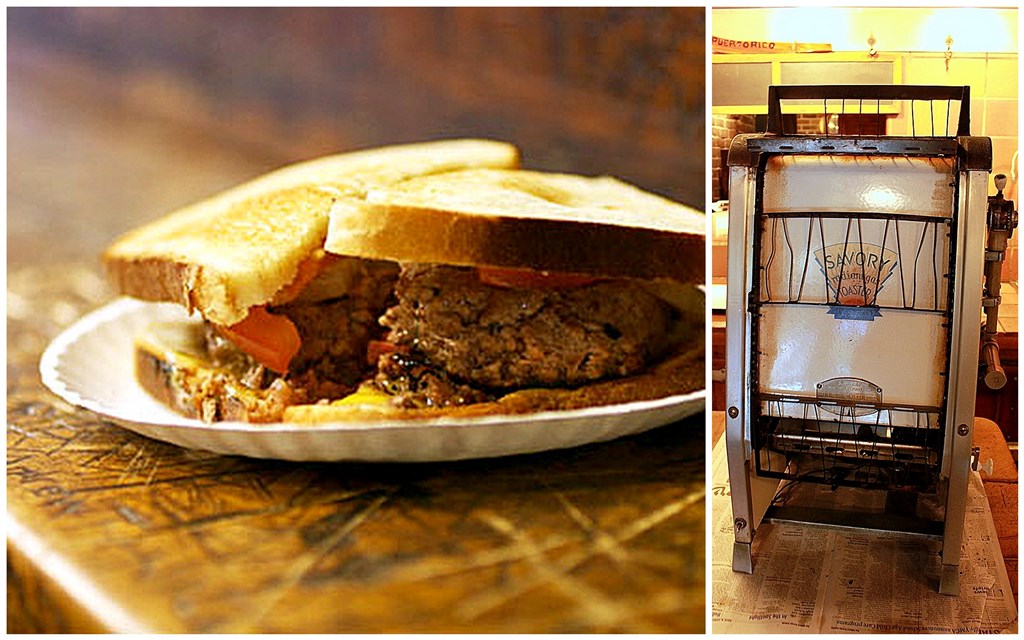 The Original Burger (photo courtesy of Serious Eats) and the bread toaster from 1929 that’s still in use today
The Original Burger (photo courtesy of Serious Eats) and the bread toaster from 1929 that’s still in use today
Author’s note: Louis’ Lunch was officially closed for the month of August during my visit but Jeff Lassen was kind enough to give me a tour and a history lesson.


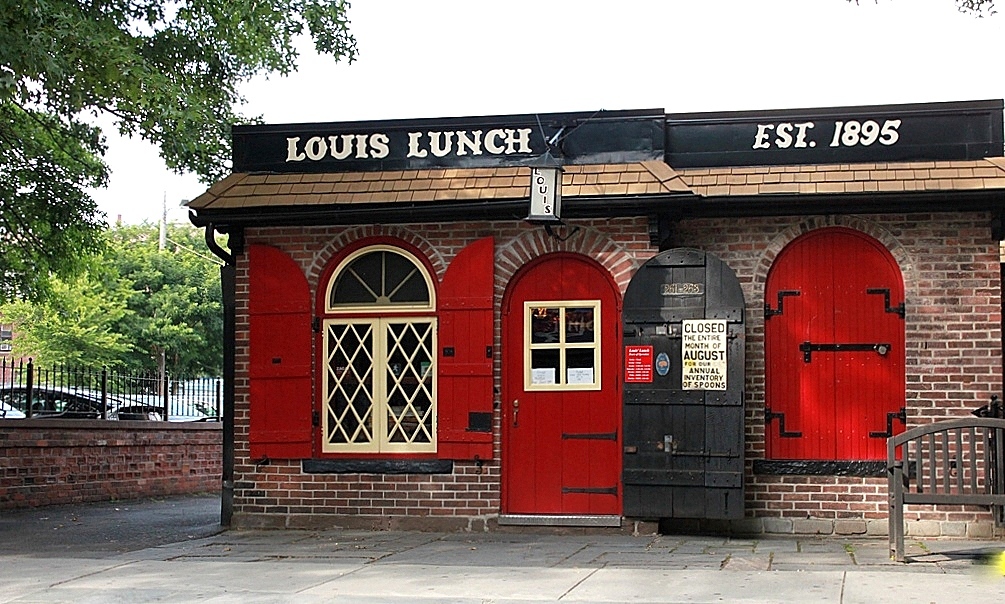
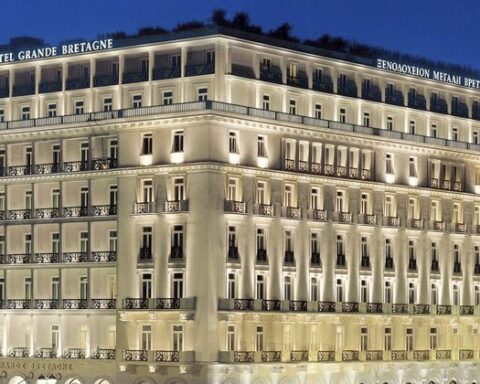

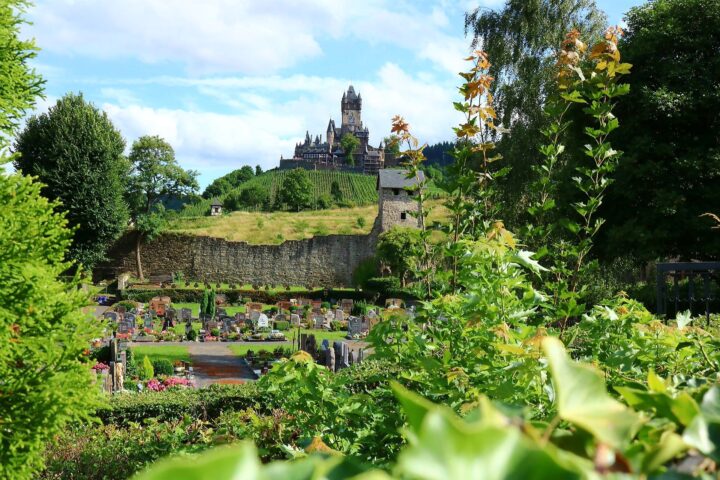
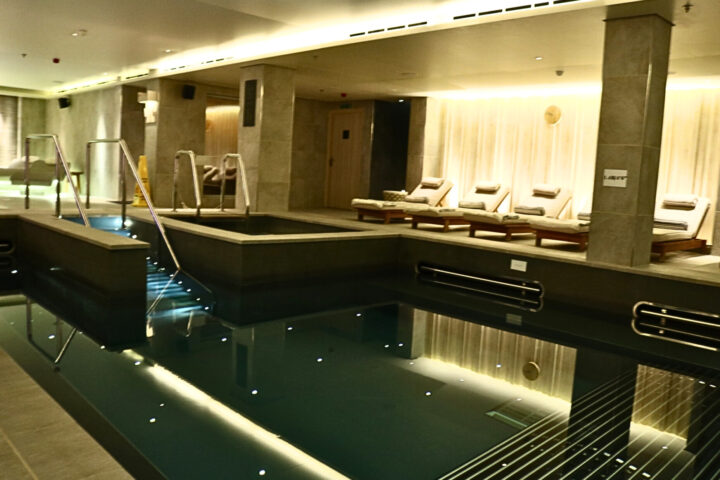

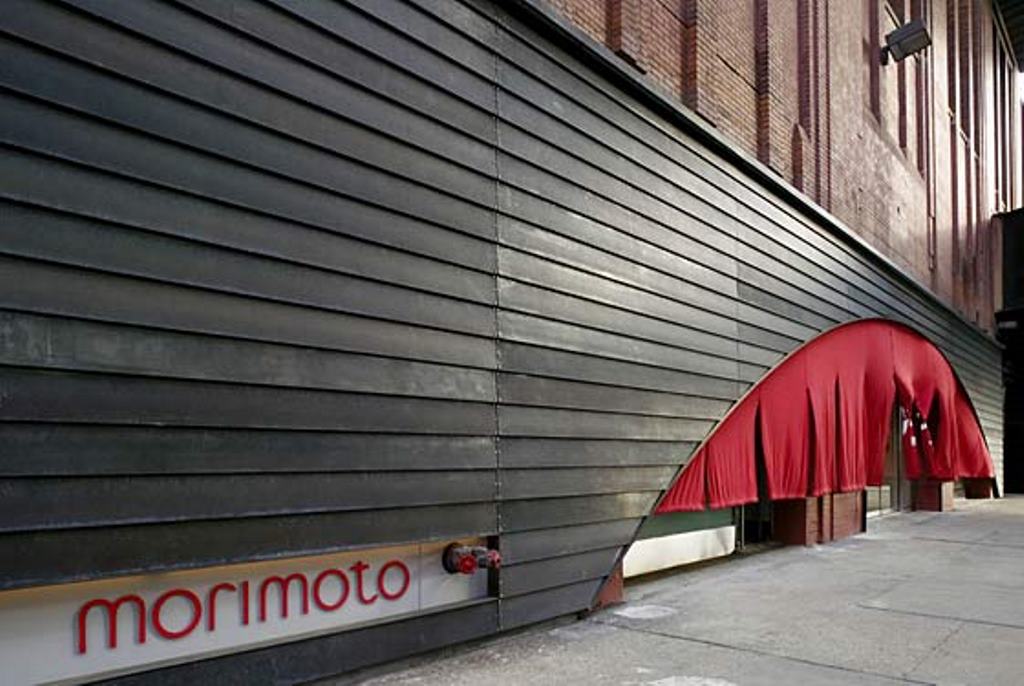
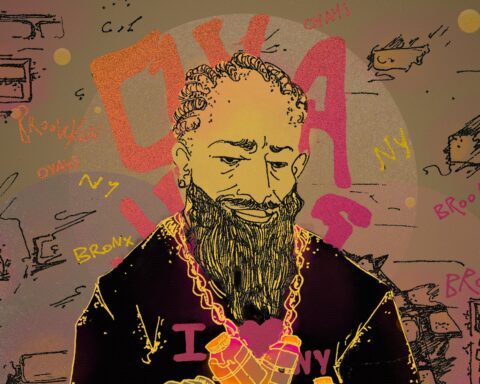
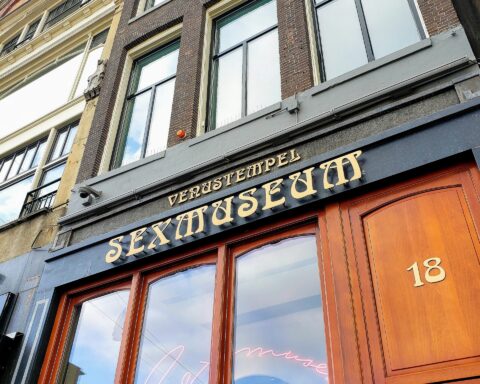
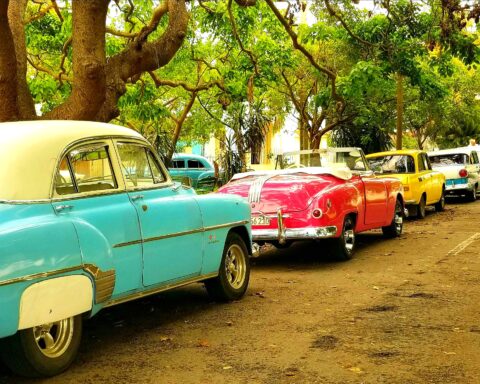


Why does the USA need to take credit for things not invented in the USA? Why all the LIES? Pretty sad.
David,
The origin of just about anything on Earth is often disputed and the hamburger is certainly no different. I’m interested in hearing your theory in regard to its place of invention (and I say that with no sarcasm).